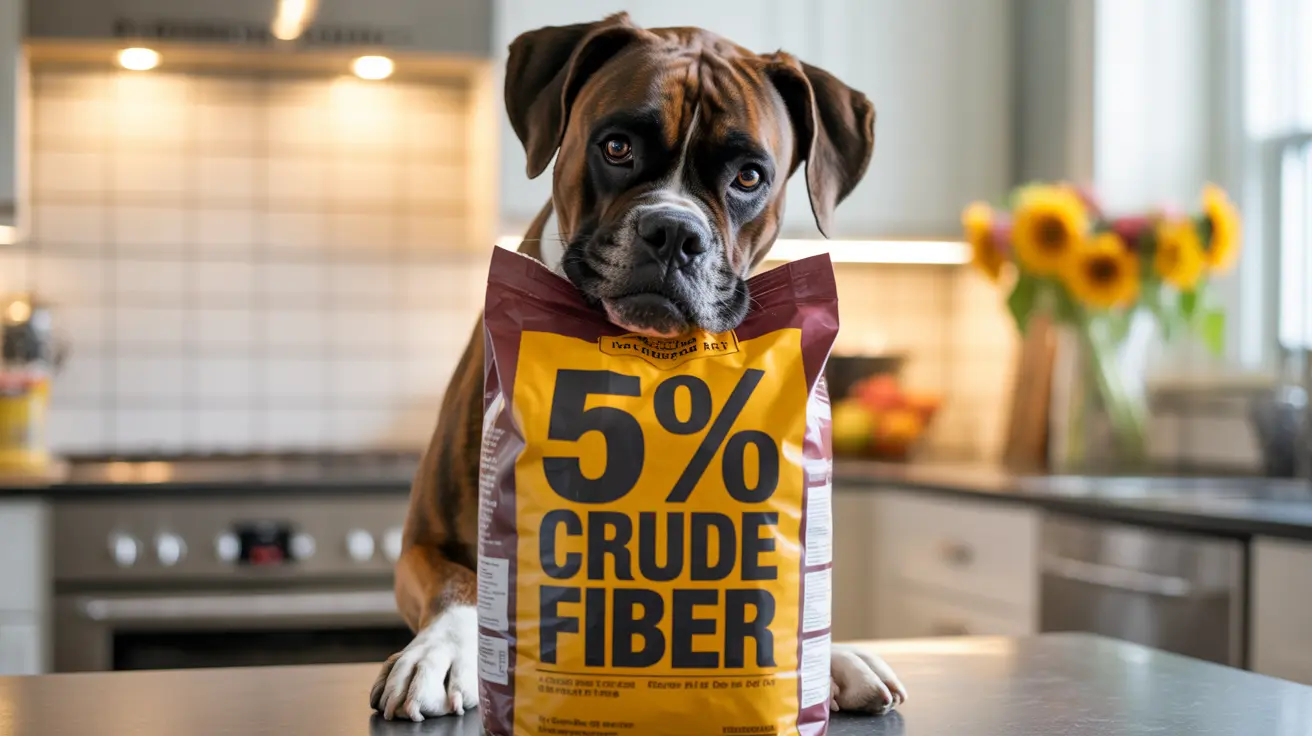When reading your dog's food label, you've likely encountered the term "crude fiber." This essential component of dog food plays a crucial role in your pet's digestive health and overall well-being, yet many pet owners don't fully understand its importance.
In this comprehensive guide, we'll explore what crude fiber in dog food really means, why it matters for your dog's health, and how to ensure your furry friend is getting the right amount in their diet.
What is Crude Fiber in Dog Food?
Crude fiber represents the indigestible plant material in your dog's food that's measured through chemical analysis. It's a mandatory component listed in the "Guaranteed Analysis" section of pet food labels, though the measurement only captures a portion of the total dietary fiber present.
Despite the term "crude," which refers to the analytical method used to measure it, this fiber isn't low-quality or harmful. Instead, it's a vital dietary component that supports your dog's digestive system and overall health.
The Different Types of Dietary Fiber
Soluble Fiber
Soluble fiber dissolves in water and forms a gel-like substance during digestion. This type of fiber helps:
- Slow down digestion
- Regulate blood sugar levels
- Feed beneficial gut bacteria
- Support immune system function
Insoluble Fiber
Insoluble fiber doesn't dissolve in water and passes through the digestive system largely intact. Its benefits include:
- Adding bulk to stools
- Promoting regular bowel movements
- Supporting anal gland function
- Helping with weight management
Health Benefits of Crude Fiber for Dogs
Proper fiber levels in your dog's diet contribute to numerous health benefits:
- Improved digestive health and regularity
- Better weight management
- Enhanced gut microbiome health
- Reduced risk of constipation and diarrhea
- Natural anal gland expression
- Increased feeling of fullness after meals
Sources of Crude Fiber in Commercial Dog Food
Quality dog foods incorporate fiber from various sources, including:
- Beet pulp
- Sweet potatoes
- Pumpkin
- Brown rice
- Wheat bran
- Cellulose
- Chicory root
- Psyllium husk
Recommended Fiber Levels for Dogs
Most commercial dog foods contain between 2% and 5% crude fiber, which is appropriate for healthy adult dogs. However, some dogs may benefit from higher or lower levels based on their specific needs:
- Weight management: 5-10% fiber
- Active dogs: 2-4% fiber
- Senior dogs: 3-5% fiber
- Dogs with digestive issues: Levels vary based on condition
Frequently Asked Questions
What exactly is crude fiber in dog food and why is it important for my dog's health?
Crude fiber is the indigestible plant material in dog food that supports digestive health. It's important because it aids in regular bowel movements, helps maintain healthy gut bacteria, and contributes to overall digestive system function.
How does crude fiber affect my dog's digestion and stool quality?
Crude fiber helps regulate digestion by adding bulk to stools and promoting regular bowel movements. It also helps maintain proper gut motility and supports natural anal gland expression through firmer stools.
What are the best natural sources of crude fiber in commercial dog foods?
The best natural sources include beet pulp, sweet potatoes, pumpkin, brown rice, and various vegetables. These ingredients provide both soluble and insoluble fiber, offering comprehensive digestive benefits.
How much crude fiber should be included in a healthy dog's diet?
Most healthy adult dogs thrive on dog food containing 2-5% crude fiber. However, the ideal amount can vary based on age, activity level, and specific health conditions.
Can too much crude fiber in dog food cause digestive problems or nutrient absorption issues?
Yes, excessive fiber can lead to decreased nutrient absorption, loose stools, and digestive discomfort. It's important to stick to recommended levels unless otherwise directed by a veterinarian.
Conclusion
Understanding crude fiber in dog food helps you make informed decisions about your pet's nutrition. While the right amount varies by individual dog, ensuring appropriate fiber levels through high-quality ingredients can significantly impact your dog's digestive health and overall well-being. Always consult with your veterinarian when making significant changes to your dog's diet.






